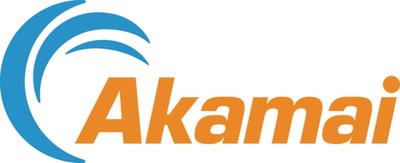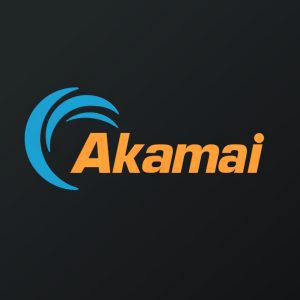Akamai Charts Course for the Next Decade of Cloud Computing with New Sites, Services, and Capabilities
- The new cloud computing sites and capabilities demonstrate Akamai's commitment to meeting the needs of modern applications and providing a new kind of cloud architecture.
- The company's strategic expansion into key locations such as Paris, Washington, D.C., and Chicago positions Akamai to address the growing demand for cloud computing services in these regions.
- The introduction of new premium instances and the doubling of object storage capacity showcase Akamai's efforts to provide consistent performance, predictable resource allocation, and scalable solutions for larger commercial workloads.
- The planned launch of the Akamai Global Load Balancer further strengthens the company's position in providing integrated services and a connected cloud vision for its customers.
- Akamai's unique advantage of leveraging its vast content delivery experience and global network to connect the new cloud computing sites sets it apart from traditional cloud providers, offering a new perspective on cloud infrastructure.
- None.
Insights
Analyzing...
New global sites challenge legacy cloud architecture by opening the door to a modern, distributed design for cloud computing
The new sites mark the first major step in Akamai's push to put compute, storage, database, and other services on top of the same underlying backbone that powers its edge network today — a massively distributed footprint spanning more than 4,200 locations across 134 countries.
"Distributed workloads require distributed infrastructure," said Adam Karon, chief operating officer and general manager, Cloud Technology Group, Akamai Technologies. "Legacy, centralized cloud architecture was not designed for the demands of developers and companies challenged with delivering better user experiences that increasingly require putting applications and data closer to the customer."
Akamai is taking a fundamentally new approach to cloud computing that shifts how developers and companies build, deploy, and secure applications and data across the entire continuum of computing from core to edge. For the rollout of the new sites, Akamai reimagined conventional data center design principles. In addition to scaling its core cloud computing services, Akamai also used its vast content delivery experience to connect each site to the company's massive global backbone. In doing so, Akamai brings the simplicity, affordability, and accessibility of its Linode-based cloud computing services to larger commercial customers on an architecture built for the next decade, not the last.
Five New Sites
Strategically located in
- Akamai's new site in
Washington, D.C. , puts a stake in the ground in what is often considered the data center hub of the world.Northern Virginia contains more than half of the total primary data center market inventory inthe United States . - The company's new
Chicago site gives Akamai customers access to cloud computing services in the fifth top data center market in the world. It's an attractive replication option for latency-sensitive, multicloud workloads running inPhiladelphia andWashington . - Akamai's presence in
Seattle gives the company access to a growing community of developer and startup customers.Seattle is the eighth-largest market in theU.S. and has become a major data center hub for companies in the Pacific Northwest. - Its new
Paris site positions Akamai to help companies in the European Union address growing data sovereignty challenges.Paris has the highest density data center capacity inEurope . - Akamai's new site in
Chennai will give the company greater access to one of the largest IT hubs inIndia . In an April 2023 survey of its partners, Akamai found that48% of respondents inIndia estimated that between 21-40% of IT budgets would be spent on cloud.
"Next generation applications demand cloud infrastructure that provides dramatically lower latency and better egress than what's currently possible from today's legacy cloud providers," said Karon. "What we're building is designed for that new world. We have a unique advantage of seeing the cloud from a different perspective than most given the nature of our business and customer base. And the feedback we increasingly hear, not only from our own customers but our competitors' customers, is that our edge-in vision solves many of the scale and portability challenges they face with the current centralized cloud options available to them."
New Premium Instances
The company also announced new premium instances that deliver consistent performance, predictable resource and budget allocation, and simpler SKU management for larger commercial workloads. The new instance types guarantee assignment to the best performing processor and hardware combination available. They can also make it easier to manage multiple deployments and upgrades without complicated SKU matching which can often see in excess of 100,000 changes a month across the top three legacy hyperscale providers. The new premium service, available across each of the company's newly launched sites, adds to Akamai's existing shared and dedicated offerings.
Doubling Object Storage Capacity
Additionally, Akamai announced it doubled the capacity of its object storage product to one petabyte and one billion objects per bucket. The upgrade allows businesses to access higher data volumes to build scalable, performant, and low-latency cloud-native applications and analytics solutions. Clusters with the increased limits will be available in the new sites announced today.
New Global Load Balancer
Lastly, the company announced plans to launch Akamai Global Load Balancer later this quarter, the first of several planned integrated services following Akamai's acquisition of Linode. The new global load balancing capabilities ensure no single point of failure, routing traffic requests to the optimal data center to minimize latency.
Akamai Global Load Balancer bridges existing functionality of Linode NodeBalancers for local traffic load balancing, with existing Akamai Global Traffic Manager and Application Load Balancer services. The resulting integration allows customers to select between local and global load balancing across Akamai's network and rapidly expanding number of sites. The introduction of Akamai Global Load Balancer is a critical component of Akamai's connected cloud vision.
The new cloud computing sites and capabilities are part of Akamai Connected Cloud, a massively distributed edge and cloud platform for cloud computing, security, and content delivery that keeps applications and experiences closer and threats farther away. Announced in February, Akamai Connected Cloud builds on 25 years of experience scaling and securing the internet for the biggest companies in the world.
More information about Akamai Connected Cloud and Akamai Cloud Computing Services is available on the Akamai website.
About Akamai Technologies
Akamai powers and protects life online. Leading companies worldwide choose Akamai to build, deliver, and secure their digital experiences — helping billions of people live, work, and play every day. Akamai Connected Cloud, a massively distributed edge and cloud platform, puts apps and experiences closer to users and keeps threats farther away. Learn more about Akamai's cloud computing, security, and content delivery solutions at akamai.com and akamai.com/blog, or follow Akamai Technologies on Twitter and LinkedIn.
Contacts:
Mike Maney
Akamai Media Relations
+1 215.589.5443
mmaney@akamai.com
Tom Barth
Akamai Investor Relations
+1.617.274.7130
tbarth@akamai.com
![]() View original content to download multimedia:https://www.prnewswire.com/news-releases/akamai-charts-course-for-the-next-decade-of-cloud-computing-with-new-sites-services-and-capabilities-301875159.html
View original content to download multimedia:https://www.prnewswire.com/news-releases/akamai-charts-course-for-the-next-decade-of-cloud-computing-with-new-sites-services-and-capabilities-301875159.html
SOURCE Akamai Technologies, Inc.








